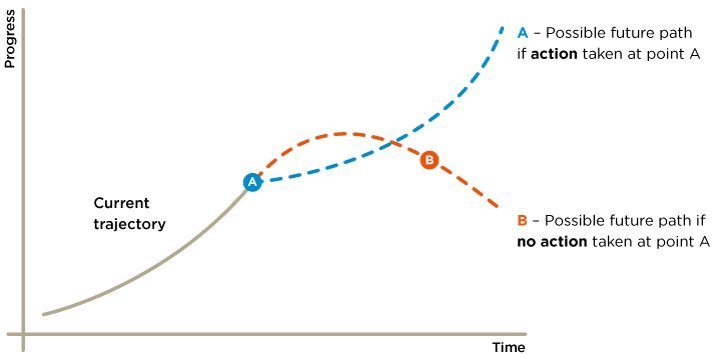Why Fonterra Will Continue To Fail
Fonterra’s business model is wrong and has been for a long time.
On one side we have farmers who rightly want the maximum return for their milk so they can invest in their own farm infrastructure. On the other side we have Fonterra wanting to pay the least for its milk raw product so it can make a greater margin on its products and invest in more value-adding infrastructure so it can compete with the likes of Nestle and Danone in branded goods. It’s a classic business paradox with clear commercial conflicts.
Because of this diametrically opposed dynamic Fonterra also finds itself capitally constrained. A “buggers muddle” some farmers might say.
It’s very easy for any of us to put the boot in and kick a company when it’s down. This is not a post about that. It’s a post that is curious about why Fonterra continues to fail to deliver adequate returns for its shareholders in its current form.
The answer is hard but also simple: split the business into two.
I’m no business genius and I don’t think you need to be a $500/hr business consultant to see what’s happening and what needs to be done: create two separate businesses – one wholesale and one retail.
Each can then focus on their core purpose without commercial conflict. You can’t have a bit of each and a bob each way. We are seeing it doesn’t work with continued declining profit announcements and sadly in the case this morning, Fonterra posting its first-ever loss.
One wholesale business can focus on procuring volume at the lowest cost using lean operational efficiency practices whilst the other retail business can focus on branded value at the highest return in the best consumer markets using deep insights and market trends.
We don’t have to look far for supporting evidence.
Whether it’s Charles Handy with his Sigmoid Curve or Professor Clayton Christensen in his book The Innovators Dilemma. Companies cannot pursue conflicting commercial aims because it will destroy them from the inside out.
Point B on the Sigmoid Curve isn’t a place to pursue profit as Fonterra is unfortunately at right now when you’re facing pressures on resource, capital and talent (their new $5m CEO position is yet to be filled). New businesses units never get resource support from the incumbent business when that incumbent business is still responsible for the majority of profit. The paradox strikes again.

Like Charles Handy in his 1994 book The Age of Paradox reminds usof the way higher productivity helps society by increasing output, while also hurting society by reducing the number of jobs. 24 years later, we could apply this equally to the move in AI and UBI. Or capitalism lifting many developing countries out of poverty into middle class but the environmental consequences that comes with it. Paradoxes are plenty.
Tom Peters and Jim Collins would say the same including facing the “brutal realities” both commercial and structure.
In Jim Collins book Good to Great, Kimberley Clark took a massive brave bill and sold some (not all) of their paper mills to fund investment in their branded goods like Huggies and Kleenex. Twenty-five years later, Kimberly-Clark was and is still at the top of its industry as a leading Fortune 500 Company.
Am I suggesting Fonterra do the same and sell some of their processing plants? No. However they would do well to enlist a panel of the world’s best business brains to help them figure out their options as a global business. The advice they are getting doesn’t seem to be working.
Charles Handy tell us “The paradox of success, that way you got where you are won’t keep you where you are, is a hard lesson to learn.” I prefer to say it simpler: what got you here won’t get you there.
Or maybe we leave the last word to General Eric Sheniski, former Chief of Staff US Army:
“If you don’t like change, you’ll like irrelevancy even less.”
Fonterra is too big and important as a $20 billion exporting company to fail for New Zealand and its farmer shareholder base. This isn’t the time to look for blame. It’s the time to look for solutions. However, the longer things stay the same, the longer nothing changes.
I wish them well with courage and conviction as they navigate this latest chapter.





